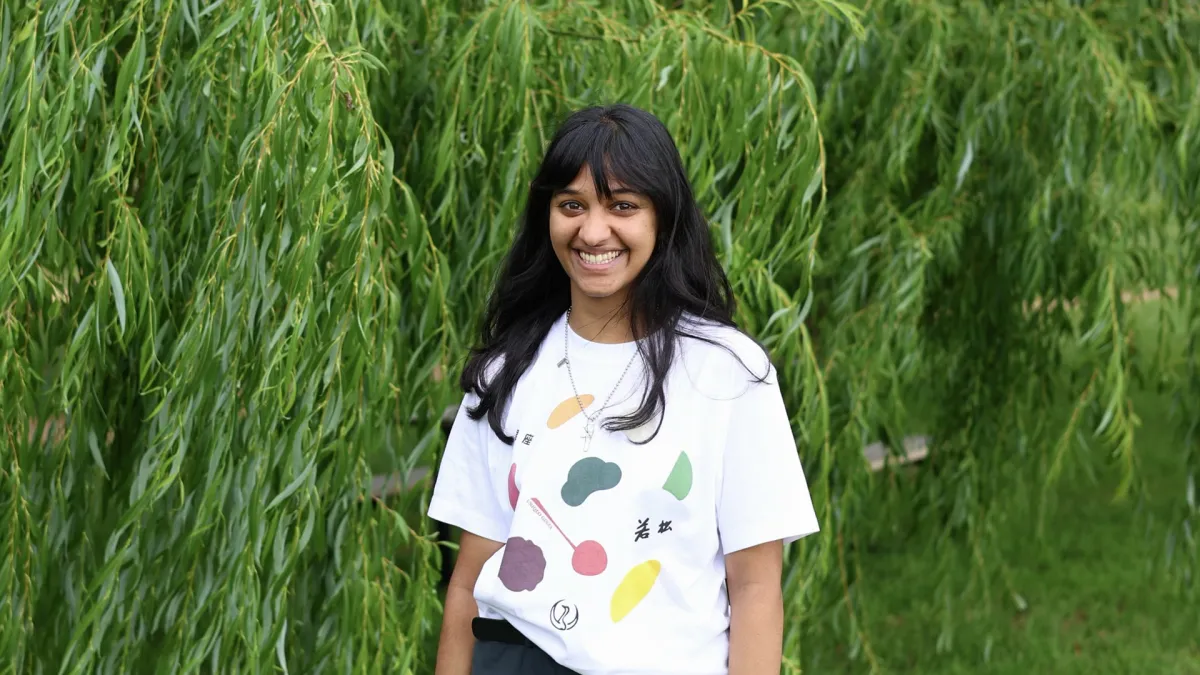Student Conversations: Mapping mental health with Sonali Varma

What keeps you up late at night?
To Honours student Sonali Varma, the recent answer was a two-day workshop hosted by Columbia University. This wasn’t your average session, though.
“It was an intensive online course on health data visualisation and analysis using geographic information system (GIS) programs,” recalls Sonali. “The only catch was the time difference… because the workshop was run in the U.S., I had to power through a few sleepless nights.”
Despite the challenge, Sonali found it entirely worthwhile. She looks on it as a necessary step towards her goal of addressing intersectional mental health inequality, an area she has a long-standing interest in.
Sonali wears many hats. She’s an undergraduate majoring in Psychology and Biochemistry, a keen science communicator, and an accredited Telephone Crisis Supporter at Lifeline Canberra—all connected by her passion in mental health.
Building on her undergraduate experiences, Sonali is now in her Honours year at the National Centre for Epidemiology and Population Health (NCEPH), working at the intersection of spatial analysis and mental health. Here, she became the first recipient of the Jason Passioura Bursary, which honours NCEPH’s late spatial scientist Jason Passioura and supports the use of high-quality data in research.
“Jason Passioura demonstrated the diverse applications of spatial analysis,” says Sonali, whose attendance at the GIS workshop was supported by the Bursary.
“I would love to apply these skills to mental health mapping.”
In this Student Conversations piece, we chat with Sonali about connecting mental health data to a map and her experiences in her Population Health Honours program.
What inspired you to undertake research in mental health?
I’ve always been interested in understanding people, so naturally I gravitated towards psychology. I knew I wanted to contribute to meaningful research, and after getting involved in mental health advocacy and support, I realised that this was an area that deeply resonated with me.
My Honours project is looking at people’s ability to recognise symptoms of mental health conditions on their own, and how this is related to formal help-seeking behaviour. I am hoping to identify targets to improve self-recognition and mental health service use!
How do GIS and spatial analysis fit in your research in mental health?
I was first introduced to spatial analysis in the Introduction to Population Health course, where Dr Kayla Smurthwaite’s lecture about geospatial analysis sparked my fascination with its potential to unravel complex patterns.
One of my research goals is to produce impactful work that tangibly helps others. To achieve this, my research needs to extend beyond the academic sphere and into communities, which requires effective science communication.
GIS are becoming increasingly popular in health sphere, and they are an excellent way to visually represent complex data. By using GIS, I hope to create clear, accessible maps that highlight mental health trends and disparities, making it easier for policymakers, healthcare providers, and the public to understand and address these issues.
Mapping…mental health?
Right. Mental health mapping is a way of visualising and analysing mental health data. This process helps us understand where certain conditions are most prevalent, how well different areas are served by services and what factors may be contributing to mental health problems in various regions.
Something that particularly excited me during the GIS workshop was learning how to create interactive maps. For example, you can overlay different layers of information—health statistics, demographic data, etc.—onto a single map. Users can interact with these maps, zooming in on specific regions or clicking on data points to reveal more detailed insights. You could also integrate temporal data to shows how mental health trends change with both space and time, which could be useful for understanding seasonal variations or intervention impacts.
By creating these maps, we can identify patterns and trends that may help policymakers and healthcare providers make better decisions about where to focus their efforts and resources to improve mental health outcomes.
An example of how mental mapping can help understand mental health in the bigger picture. The maps showcase the change of average number of poor mental health days in the US. Source: Este Geraghty et al. (2023)
This sounds exciting! What is your experience so far doing your Honours at NCEPH?
So far, I have loved being part of NCEPH! Given most of the programs are geared towards postgraduate studies, the Honours cohort is very small—I am half of the cohort. However, in the first semester we completed our coursework alongside the master’s students, so we were very much so included in the student community.
Now going into the second semester, the focus is really on the thesis, which is exciting. After spending so much time preparing and developing my project, I have been enjoying getting stuck into my analyses.
Would you recommend others undertake an Honours year at NCEPH?
I would 100% recommend Honours at NCEPH because so much of the research here has real world impact. It feels like I’m contributing to something bigger, and that makes the work even more fulfilling.
Beyond this, everyone has been incredibly supportive and welcoming, particularly in the Centre for Mental Health Research. There are so many opportunities for professional development and mentorship, and I’ve been trying to make the most out of my time here.
What do you think you will do when you finish your Honours year?
This is a good—and scary—question! Next year, I’d love to continue my work in the mental health space, whether that be through research, advocacy, or policy.
I am inherently a curious person and can see myself doing a PhD at some point, but before that I would love to get some more hands on experience. I’m also considering doing master’s with a stats or epi focus but we will see what happens… Time will tell!
